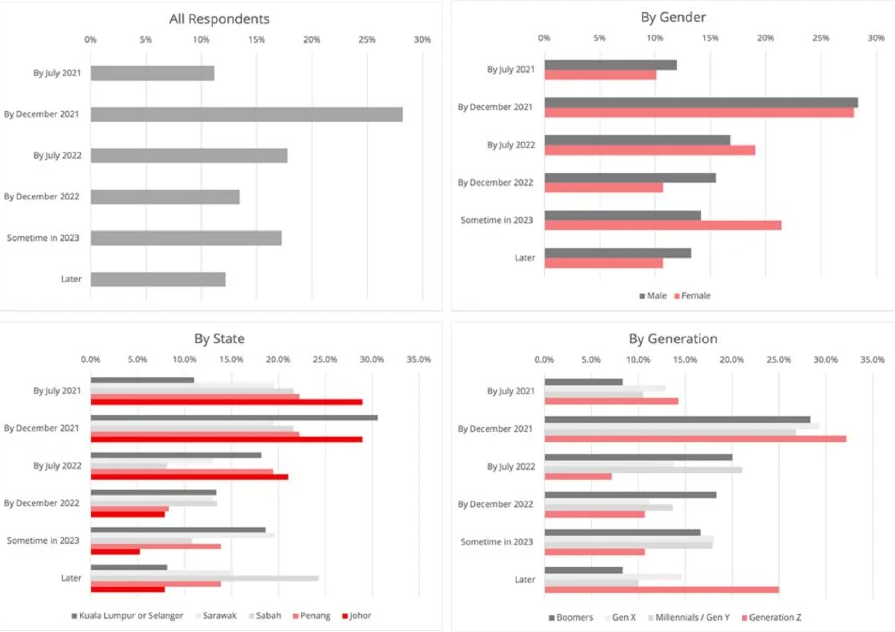Demand for real estate may increase as Malaysians report higher household income
Demand for big-ticket items such as real estate could increase as Malaysians report higher household income despite the ongoing Covid-19 pandemic.
Juwai IQI Group co-founder and chief executive officer Kashif Ansari said that the effects of the pandemic have not been as harmful as anticipated.
“Malaysians did quite well compared to many other nations, and a significant portion saw better than expected results,” he said.
Kashif said new data from Juwai IQI based on a survey of hundreds of consumers showed 21 per cent of respondents reporting higher household income compared to 12 months ago, as versus 40 per cent who reported lower income.
About 10 per cent of the respondents reported that their income is now ‘a lot higher’ than one year earlier, he said.
The data by Juwai IQI examines the pandemic’s impact on household income, employment, and businesses and the route back to normality. Each factor is examined from the perspective of gender, state, and age group.
Kashif said over the past year, 29 per cent of men and 26 per cent of women reported their household income has climbed ‘a lot’ or ‘a little.’
The best-off states in terms of income are Penang and Sabah, with 29 per cent of respondents in each state reporting higher household income today.
Kashif also noted that the generation that is best weathering the pandemic are the Millennials, also known as Gen Y, are they are more likely to report higher rates of increased income than people of other ages.
Thirty-one per cent of Gen Y have higher household income than a year ago. Generation Z (Gen Z) was next, with 29 per cent reporting higher household income. Generation X (Gen X) followed with 28 per cent.
Boomers and older individuals had the lowest rate of increased household income, with 17 per cent reporting an increase over the past year.

Members of Gen Z are aged nine to 24, Gen Y is 24 to 39, Gen X is 41 to 56, and Boomers are 57 to 74.
“When it comes to keeping businesses open and maintaining high employment, the pandemic has presented both government and businesses with severe challenges. Despite this, 70 per cent of Malaysians reported that they have neither lost a job nor had to close a business.
“Women and men had very similar rates of continued employment. Sixty-nine per cent of women reported they have not lost their job or had to close their businesses over the past year. Men were marginally higher, with 71 per cent reporting the same.
“The states with the best results in this respect are Penang and Kuala Lumpur or Selangor where 72 per cent of respondents kept their job or their business open. The oldest generations are the most likely to have gotten through without losing a job or having to close a business.
“Gen Y and Gen Z were the next best-performing age groups, with 71 per cent of individuals in this age group enjoying job security in the pandemic year. Members of Gen X did less well, with 65 per cent of individuals reporting they did not lose their job or close their business in the past year,” Kashif said.

Meanwhile, the survey revealed that some see normalcy returning only in 2023 or even later, but others believe it could happen as early as this year.
Kashif said 28 per cent of respondents expect life to get back to pre-pandemic normal by December this year, while 18 per cent think it would be by July 2022.
He said 17 per cent of respondents expect life to be back to normal sometime in 2023, and a smaller number predict normalcy may return by December 2022 or later than 2023.

“Residents of Johor are the most optimistic about the return to normal, with 58 per cent of respondents there expecting life to be back to pre-pandemic normal in 2021. In the other states, the share who expect to be able to put the pandemic behind them by the end of this year is 44 per cent in Penang, 43 per cent in Sabah, 41 per cent in Kuala Lumpur or Selangor, and 39 per cent in Sarawak,” he said.
Source: NST

